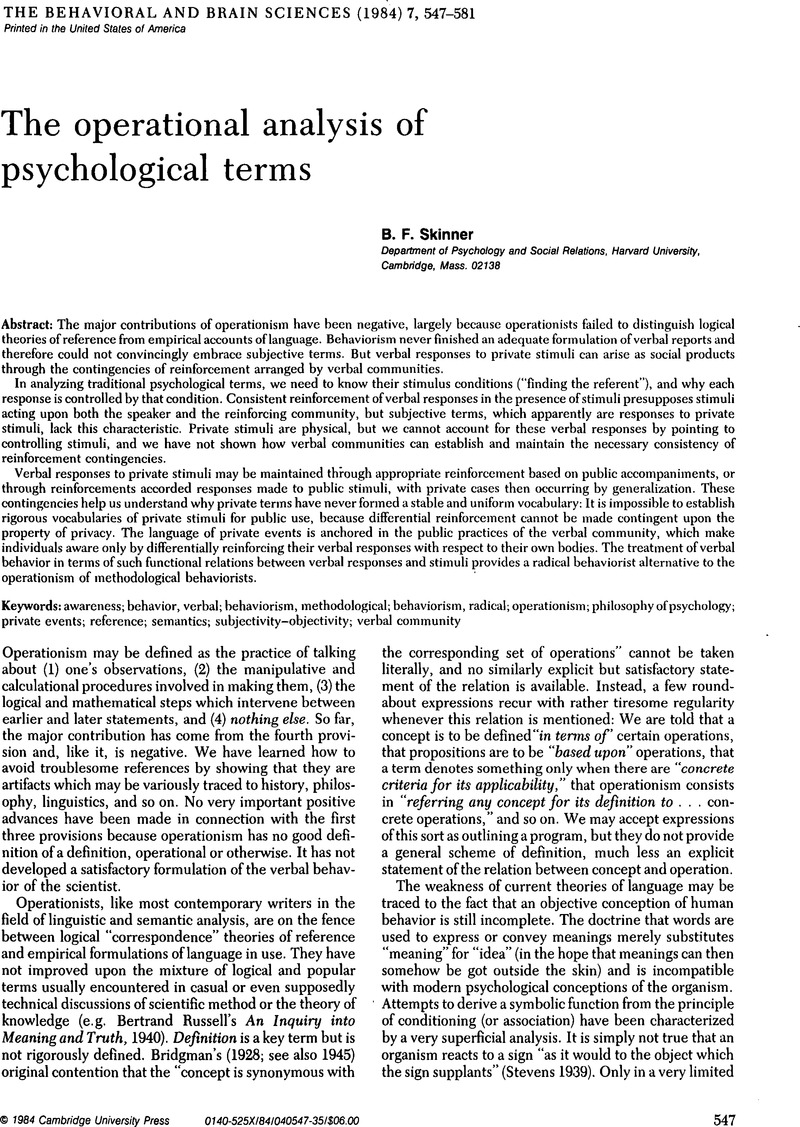Scriven, M. (
1956) A study of radical behaviorism. In:
The foundations of science and the concepts of psychology and psychoanalysis, ed.
Feigl, H. &
Scriven, M.. Minnesota Studies in the Philosophy of Science, vol.
1.
University of Minnesota Press. [JDR]
Google Scholar 